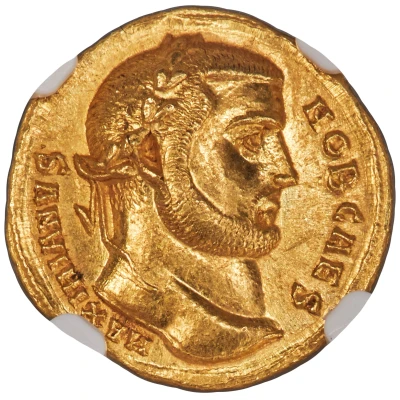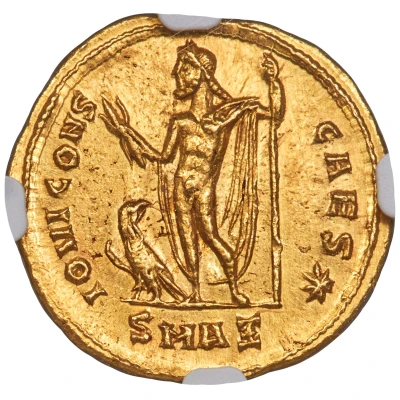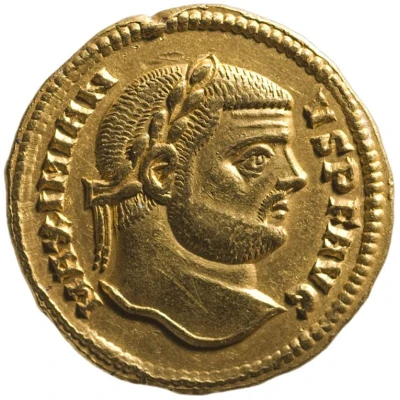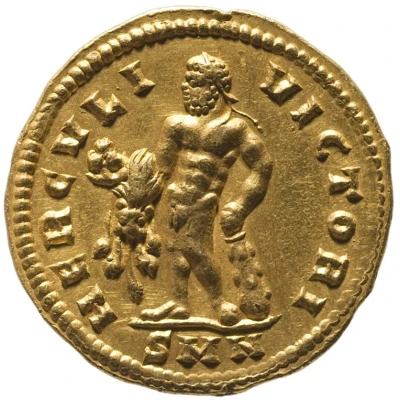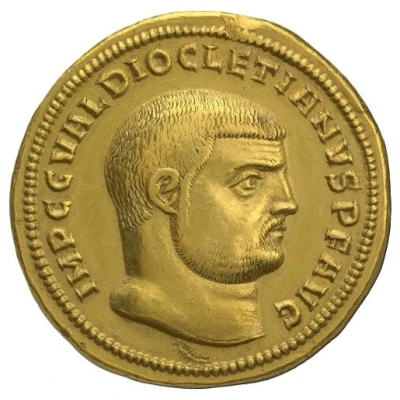
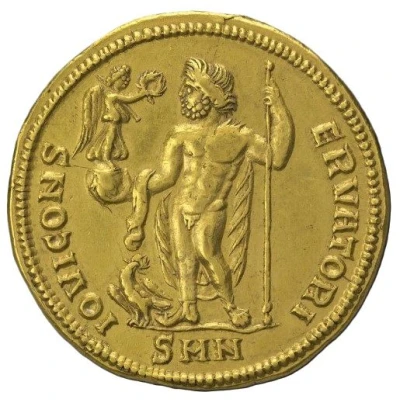

Aureus - Diocletian IOVI CONS-ERVATORI; Nicomedia
294 year| Gold | 53.50 g | 37 mm |
| Issuer | Rome › Roman Empire (27 BC - 395 AD) |
|---|---|
| Emperor | Diocletian (Gaius Aurelius Valerius Diocletianus) (284-305) |
| Type | Standard circulation coin |
| Year | 294 |
| Value | Aureus (10) |
| Currency | Argenteus, Reform of Diocletian (AD 293/301 – 310/324) |
| Composition | Gold |
| Weight | 53.50 g |
| Diameter | 37 mm |
| Shape | Round (irregular) |
| Technique | Hammered |
| Orientation | Variable alignment ↺ |
| Demonetized | Yes |
| Updated | 2024-10-05 |
| Numista | N#387859 |
|---|---|
| Rarity index | 100% |
Reverse
Jupiter, chlamys hanging behind, standing front, head left, holding Victory on globe in right hand and leaning on sceptre with left hand; at feet to left, eagle holding wreath in its beak; below, mintmark
Script: Latin
Lettering:
IOVI CONS-ERVATORI
SMN
Translation: Jupiter the protector
Comment
This is an example of the largest size of gold medallion known from Tetrarchic times. The size enables the creation of a particularly powerful 'portrait' in the Tetrarchic style; shorn of any imperial regalia (such as a laurel wreath) Diocletian is presented as a forceful-looking but depersonalised caricature.
Like the ordinary gold coins of this year, the reverse honours one of the guardian gods of the newly established Tetrarchy, that of the eastern house of Diocletian and Galerius: the 'Jovians'. (Jove is the alternative name for Jupiter / Zeus). Minted at Diocletian's capital, Nicomedia, it was possibly distributed for the occasion of the appointments of the new Caesars.
British Museum
Interesting fact
One interesting fact about the Aureus - Diocletian (IOVI CONS-ERVATORI; Nicomedia) (294) coin is that it was issued during the reign of Emperor Diocletian, who introduced a series of economic and military reforms in an attempt to stabilize the Roman Empire, which was facing significant challenges at the time. The coin's design features an image of Jupiter, the Roman god of the sky and thunder, on the obverse (front side), and an image of Diocletian on the reverse (back side). The coin's gold content and intricate design make it a valuable and sought-after collector's item among numismatists today.
